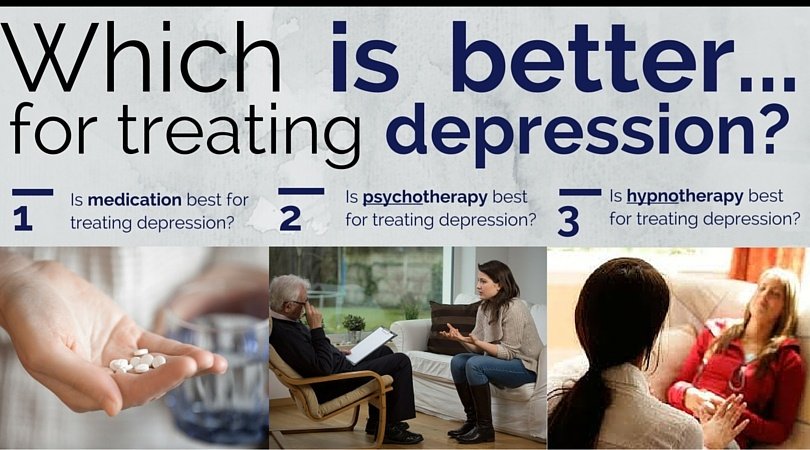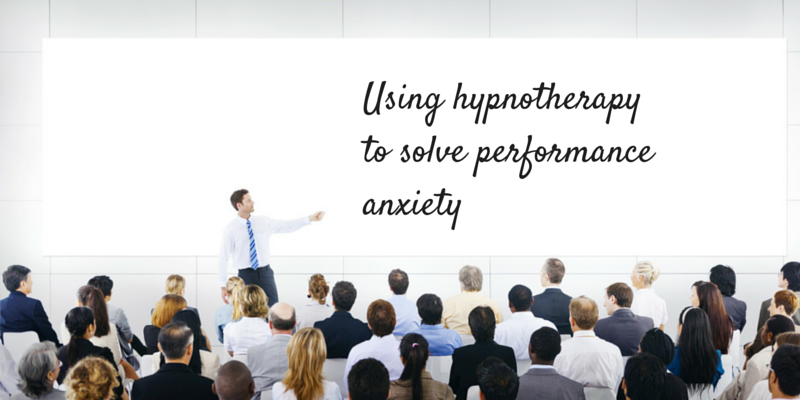What’s the Best Way to Treat Depression: Medication, Psychotherapy, or Hypnotherapy?
What’s the Best Way to Treat Depression: Medication, Psychotherapy, or Hypnotherapy?

Nearly 1 in 10 Americans every year suffers from depression, whether it’s brought on by a loss, life transition, or traumatic event; or caused by a chemical imbalance. As a professional therapist, it’s likely that many of your clients suffer from some form of depression and just as likely you’re in search of the most effective way to treat them, allowing them to move past their depression and on with their lives
Most therapists treat depression with medication, psychotherapy, or—most often—a combination of the two. While research has shown that a combination of medication and psychotherapy can be effective, some therapists feel these treatments don’t go deep enough.
Depression has a movement and cycle all its own, often described as a downward spiral. There are emotional, cognitive, and physical symptoms that all become reinforced through the client’s negative self-talk and negative core beliefs. While popular treatments such as cognitive behavioral therapy show reasonable success rates by focusing on the examination of conscious thoughts and behaviors, there is little done to address the source of the beliefs themselves. Similarly, antidepressant medications can provide significant relief of the most severe depressive symptoms, but they do not address the underlying causes. Hypnotherapy does.
4 Benefits of Treating Depression with Hypnotherapy
Hypnotherapy provides benefits that go much deeper than relief of symptoms. Here are some of the benefits that hypnotherapy can offer to those suffering from depression:
1. Connection with Internal Resources.
In a hypnotherapy session, your client is given an opportunity to find and connect with psychological resources. These resources can be accessed not only in the hypnotherapy session, but anytime. Resourcing gives your client additional coping skills and increases their resiliency, two things that are commonly eroded by the heaviness and lethargy of depression.
Resourcing can also help your clients reconnect to their higher power (however they define it). Not surprisingly, the many negative symptoms of depression can create a sense of spiritual isolation, loss of purpose, and/or disconnection from the wisest or highest self. Under hypnosis, clients are able to repair whatever cut-off may have occurred in the course of the depressive episode.
2. Getting to the Heart of the Matter
In hypnotherapy, your clients are able to make direct contact with their subconscious minds. While in a hypnotic trance, your clients can closely examine their emotions and the subconscious beliefs connected to them. There is ample opportunity to explore the relationship between the two.
With the guidance of the hypnotherapist, clients connect their core beliefs to early experiences, providing insight and understanding. Often, your clients will experience some symptom relief by simply having more compassion for their younger selves.
3. Challenging the Negative
When your clients trace negative beliefs and conclusions back to their source, they are guided through a process of challenging the belief, to test whether or not it is actually true. Under hypnosis, clients reframe what they once believed into something positive, often with the help of their newly-discovered resources.
With hypnotherapy, your clients are empowered to change old beliefs such as “I am unlovable,” “I’m all alone,” or “I’ll never have what I want” into more affirmative new conclusions, such as “I am loved,” “I am not alone,” “I am supported,” or “All my needs are met.”
Providing a Corrective Experience
One of the most unique and valuable aspects of hypnotherapy is the ability to provide clients with a corrective experience; that is, re-experiencing a difficult or traumatic event, but with the ability to make changes and affect the outcome.
Many unresolved emotional issues stem from the inability to cope with events in resourceful ways at the time…but in trance, the younger self/inner child is connected with psychological resources, receives attention and validation, and is encouraged to rework their previously negative conclusions. The wounded part or wounded inner child is able to receive what they needed and didn’t get at the time, and your adult client is able to provide acknowledgment, love, and safety for that child.
The Bottom Line
Hypnotherapy continues to gain popularity in the treatment of depressive disorders. While traditional therapies focus primarily on the conscious mind and the physical brain, hypnotherapy provides holistic consideration of mind, body, and spirit, making it an important addition to any treatment strategy for relieving depression.
{{cta('25928eee-7127-4709-95ac-9704deaf2e34')}}








